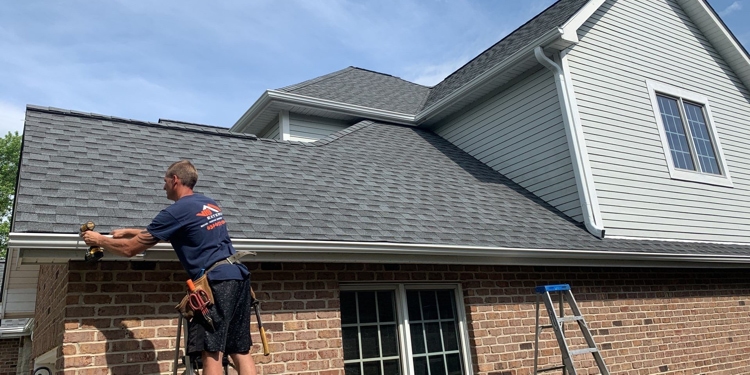When it comes to hiring a roofer for your home improvement project, ensuring that they are licensed and certified is essential. Licensed roofer certification demonstrates that a contractor has met certain standards of competency, professionalism, and legal compliance, providing homeowners with peace of mind and protection against potential risks. In this article, we’ll explore what Licensed Roofer certification entails, the requirements for obtaining it, and the benefits it offers to both contractors and homeowners.
What is Licensed Roofer Certification?
Licensed roofer certification is a credential issued by state or local licensing authorities to individuals or companies engaged in roofing work. Certification signifies that the roofer has met specific requirements and qualifications related to experience, training, education, and legal compliance. Licensed roofers are authorized to perform roofing services, including repairs, replacements, installations, and inspections, in accordance with industry standards and regulations.
Requirements for Obtaining Licensed Roofer Certification
The requirements for obtaining licensed roofer certification vary from one jurisdiction to another but generally include the following:
Experience and Training
Licensed roofers are typically required to have a certain amount of experience working in the roofing industry. This may involve completing an apprenticeship program, working under the supervision of a licensed roofer, or obtaining on-the-job training in roofing techniques, materials, and safety practices. Some jurisdictions may also require candidates to complete formal education or training programs in roofing technology or construction trades.
Licensing Examination
Candidates for licensed roofer certification are often required to pass a licensing examination administered by the licensing authority in their state or local jurisdiction. The examination assesses the candidate’s knowledge of roofing principles, techniques, materials, safety regulations, and local building codes. Passing the examination demonstrates that the candidate has the necessary expertise and competency to perform roofing work safely and effectively.
Insurance Coverage
Licensed roofers are required to carry liability insurance and workers’ compensation insurance to protect against accidents, injuries, and property damage that may occur during the course of their work. Insurance coverage provides protection for both the roofer and the homeowner in the event of unforeseen incidents or liabilities. Candidates for licensed roofer certification must provide proof of insurance coverage to demonstrate their financial responsibility and accountability.
Financial and Legal Requirements
In addition to experience, training, and insurance coverage, candidates for licensed roofer certification may be required to meet certain financial and legal requirements. This may include demonstrating financial stability, maintaining a clean criminal record, and adhering to ethical and professional standards of conduct. Licensed roofers are held to high standards of integrity, honesty, and professionalism to ensure the trust and confidence of homeowners and the public.
Benefits of Licensed Roofer Certification
Licensed roofer certification offers numerous benefits to both contractors and homeowners. Here are some of the key advantages:
Demonstrates Competency and Professionalism
Licensed roofers have demonstrated their competency, professionalism, and expertise in the roofing industry. Certification signifies that the roofer has met specific standards of training, education, and experience and has passed a licensing examination to demonstrate their knowledge and skills. Homeowners can have confidence in the quality of workmanship and professionalism provided by licensed roofers, knowing that they have undergone rigorous training and certification.
Compliance with Building Codes and Regulations
Licensed roofers are required to comply with building codes, safety regulations, and permit requirements established by state and local authorities. Certification ensures that the roofer is familiar with these codes and regulations and adheres to them when performing roofing work. Compliance with building codes not only ensures the safety, integrity, and durability of the project but also protects homeowners from fines, penalties, or legal issues resulting from non-compliance.
Liability Protection for Homeowners
Licensed roofers carry liability insurance and workers’ compensation insurance to protect against accidents, injuries, and property damage that may occur during the course of their work. Insurance coverage provides protection for both the roofer and the homeowner in the event of unforeseen incidents or liabilities. Homeowners can rest assured that they are not held liable for any mishaps or accidents that may occur on their property during the roofing project.
Warranty Coverage and Guarantees
Many licensed roofers offer warranties or guarantees for their workmanship and materials, providing added protection and peace of mind for homeowners. These warranties typically cover defects in materials or workmanship for a specified period, ensuring that any issues that arise after the completion of the project are addressed promptly and effectively. Warranty coverage provides homeowners with recourse to have the issues addressed at no additional cost, saving them time, money, and stress in the long run.
Recourse in Disputes
In the event of disputes or issues with a Licensed Roofer, homeowners have recourse through the licensing authority. Licensed roofers are held accountable for their actions and conduct and can be subject to disciplinary action if they fail to meet their obligations. Homeowners can file complaints, seek mediation or arbitration, or take legal action to address grievances and obtain compensation for damages or losses. This recourse ensures that homeowners have avenues for resolving disputes and holding contractors accountable for their actions.
Conclusion
Licensed roofer certification is a credential that demonstrates a contractor’s competency, professionalism, and legal compliance in the roofing industry. Certification ensures that roofers have met specific requirements and qualifications related to experience, training, education, and insurance coverage. Licensed roofers comply with building codes and regulations, carry liability insurance, and offer warranty coverage and guarantees for their workmanship and materials. By hiring a licensed roofer, homeowners can have confidence in the quality of workmanship, safety, and accountability provided by certified professionals. Therefore, when it comes to roofing projects, always prioritize hiring a licensed roofer to protect your investment and ensure peace of mind.





